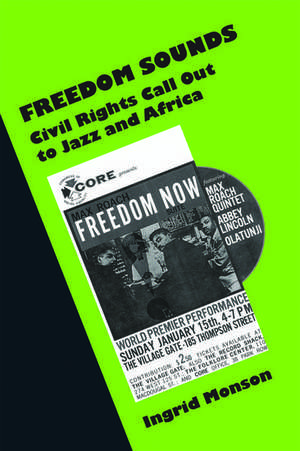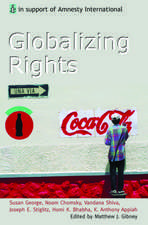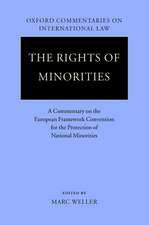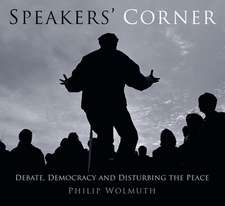Freedom Sounds: Civil Rights Call out to Jazz and Africa
Autor Ingrid Monsonen Limba Engleză Paperback – 25 noi 2010
| Toate formatele și edițiile | Preț | Express |
|---|---|---|
| Paperback (1) | 270.93 lei 31-37 zile | |
| Oxford University Press – 25 noi 2010 | 270.93 lei 31-37 zile | |
| Hardback (1) | 820.89 lei 31-37 zile | |
| Oxford University Press – 6 dec 2007 | 820.89 lei 31-37 zile |
Preț: 270.93 lei
Nou
Puncte Express: 406
Preț estimativ în valută:
51.85€ • 53.93$ • 42.80£
51.85€ • 53.93$ • 42.80£
Carte tipărită la comandă
Livrare economică 04-10 aprilie
Preluare comenzi: 021 569.72.76
Specificații
ISBN-13: 9780199757091
ISBN-10: 0199757097
Pagini: 416
Ilustrații: 16 halftones and 16 line drawings
Dimensiuni: 229 x 152 x 24 mm
Greutate: 0.61 kg
Editura: Oxford University Press
Colecția OUP USA
Locul publicării:New York, United States
ISBN-10: 0199757097
Pagini: 416
Ilustrații: 16 halftones and 16 line drawings
Dimensiuni: 229 x 152 x 24 mm
Greutate: 0.61 kg
Editura: Oxford University Press
Colecția OUP USA
Locul publicării:New York, United States
Recenzii
Ingrid Monson is one of the pre-eminent scholars of modern `usic, American history, and African American culture. In this book she puts forward a theoretically sophisticated, historically nuanced, and politically courageous analysis of how jazz was recast and remade on the treacherous terrain of postwar America (1950-1967). This book is cultural criticism at its best!
In this brilliant, polyphonic rendering of the relationship of jazz to the civil rights movement, Monson offers a compelling account of the interplay of music, race, and aesthetic modernism in American history. The music itself is never tangential to her story; on the contrary, we see how it came to embody the very ethos of the struggle and the presumptions that nurtured it. Monson insists that jazz exemplifies the faith that inspired performance can break beyond existing artistic and social constraints, that it offers a vision of history relevant way beyond its time and place. The same might be said of this extraordinary book.
In this brilliant, polyphonic rendering of the relationship of jazz to the civil rights movement, Monson offers a compelling account of the interplay of music, race, and aesthetic modernism in American history. The music itself is never tangential to her story; on the contrary, we see how it came to embody the very ethos of the struggle and the presumptions that nurtured it. Monson insists that jazz exemplifies the faith that inspired performance can break beyond existing artistic and social constraints, that it offers a vision of history relevant way beyond its time and place. The same might be said of this extraordinary book.
Notă biografică
Ingrid Monson is the Quincy Jones Professor of African American Music, Supported by the Time Warner Endowment at Harvard University where she holds a joint appointment in the departments of Music and African and African American Studies. Her research interests include jazz, African American music, and the music of Mali.

















